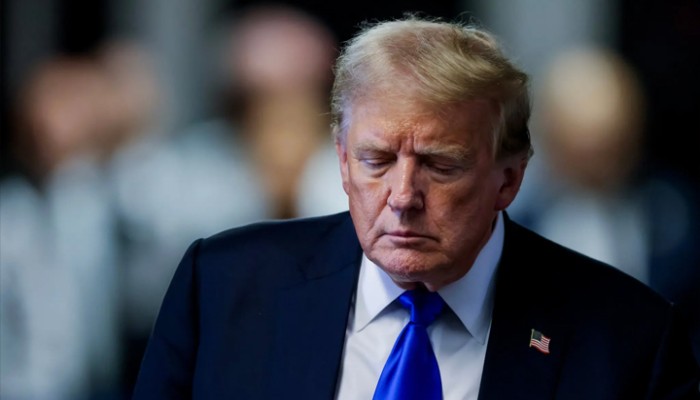
Donald Trump Convicted of All 34 Felony Counts in Hush-Money Case
Staff Report , Published: May 31, 2024, 8:05 am

In a historic verdict, former President Donald Trump has been convicted on all 34 felony charges related to a hush-money payment made to porn star Stormy Daniels during the 2016 election. This unprecedented decision marks Trump as the first American president to be declared a felon, a significant blemish as he aims for a return to the presidency.
The jury, composed of 12 New Yorkers, endured weeks of sensational testimony detailing tabloid-style negotiations, a sexual encounter between Trump and Daniels, and the $130,000 payment intended to buy her silence.
Prosecutors argued that Trump committed fraud against the American public by falsifying records linked to the reimbursement of Michael Cohen, his former fixer, who initially paid Daniels from his own funds.
According to courtroom reports from journalist Jonah Bromwich, Trump remained stoic upon hearing the verdict. Outside the courtroom, however, he repeated familiar grievances, alleging judicial bias, politically motivated prosecution, and an unfair trial venue due to Manhattan's liberal leanings. "The real verdict is going to be Nov. 5, by the people," Trump declared.
This verdict represents a landmark moment in U.S. history, concluding the first of four criminal cases against Trump that is likely to reach trial before the 2024 election. Sentencing is scheduled for July 11, just days before the Republican National Convention.
The felony convictions could result in a sentence of up to four years, though Trump might avoid prison time, possibly receiving probation instead. He is expected to appeal, potentially dragging out the case for years.
Despite the conviction, nothing legally bars a felon from running for or serving as president. Trump is already using the verdict to galvanize his base, portraying himself as a victim of a Democratic conspiracy. Shortly after the verdict, his campaign issued a fundraising appeal branding him a "political prisoner."
Should Trump be sentenced to prison, the Secret Service is legally obligated to continue protecting him.